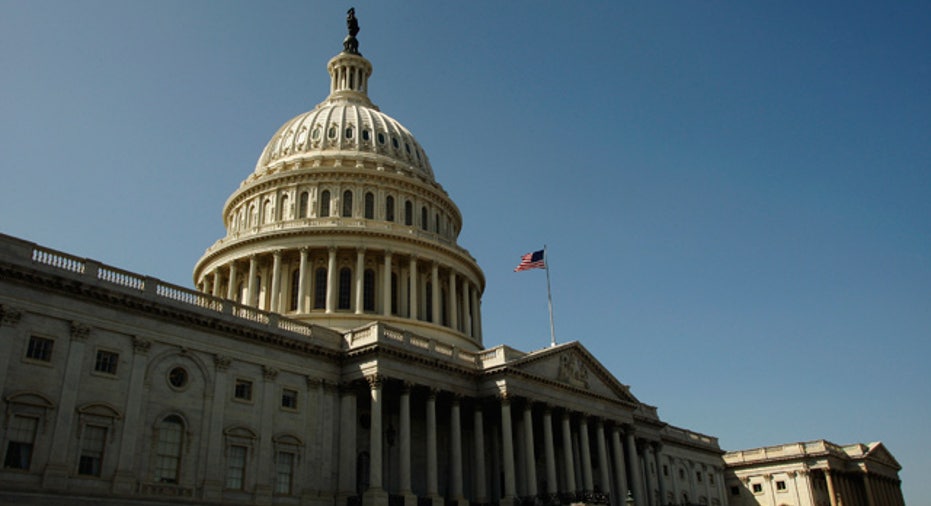Senate Sets Votes on Competing Spending Bills

Lawmakers crafted another stopgap spending bill in the House of Representatives on Tuesday to keep the government running while the Senate set votes for Wednesday on two longer-term measures that appeared doomed to failure.
Showdown votes in the Senate will be held on both the House-passed Republican spending bill for the rest of this fiscal year, which ends September 30, and a Democratic alternative. Neither measure is expected to get the 60 votes needed for passage.
Congressional leaders and the White House hope that staging failed votes on the Republicans' proposed $57 billion in cuts from current levels and the Democrats' proposed $4.7 billion in reductions will demonstrate the need for compromise on a bill that could ultimately pass both chambers.
Meanwhile, the Republican-led House Appropriations Committee was readying a sixth stopgap measure to keep the government running beyond a March 18 deadline, when current funding authority ends, an aide said, adding that details were not yet firm.
The action indicated that a larger deal on funding the government through September 30 was unlikely by next week.
"Republicans will be prepared to do another two, three or four week" spending bill that includes further cuts, said Republican Representative Kevin McCarthy, a member of the House Republican leadership, at a breakfast meeting with reporters.
As some lawmakers focused on how to resolve spending fights this year, others on Capitol Hill were looking ahead to the battle over the budget for fiscal 2012, which starts on October 1.House Majority Leader Eric Cantor said the Republican blueprint for the future will leave the U.S. budget in deficit for at least a decade.
"You cannot balance this budget in 10 years without severely impacting the benefits that current seniors ... are getting now," the second-ranking House Republican said.
Republicans have so far refused to consider tax increases as part of any deficit-cutting effort. But they say they will tackle cost savings for future recipients of Social Security retirement payments and Medicare health insurance for the elderly and disabled.
Lawmakers first must settle on a permanent budget for the current fiscal year, which started last October 1.
The temporary spending bill that is keeping the government in business claims to achieve about $4 billion in savings over two weeks.
Failure to pass another spending bill by March 18 would lead to an immediate shutdown of nonessential federal government services -- everything from passport offices to nuclear research facilities -- and the potential loss of thousands of jobs.
The Republican bill, already passed by the House, would cut about $57 billion from current levels. When coupled with the $4 billion in savings from the current two-week stopgap bill, it would eliminate about $61 billion in government spending in a fiscal year forecast to see a record $1.65 trillion deficit.
The proposal is the centerpiece of Republicans' promise to boost the economy by rolling back regulations and slashing government spending.
Senate Majority Leader Harry Reid said the Republican plan for the rest of the fiscal year would gut programs for education and renewable energy. That bill also would stop the Obama administration from carrying out the landmark healthcare reform law enacted last year.
Some economists have warned the deep spending cuts could throw as many as 700,000 people out of work at a time of high unemployment.
Reid, whose Democrats hold narrow control of the Senate, suggested cutting subsidies for agriculture and oil companies.
McConnell called the Democrats' plan "puny compared to the fiscal problems we face."



















